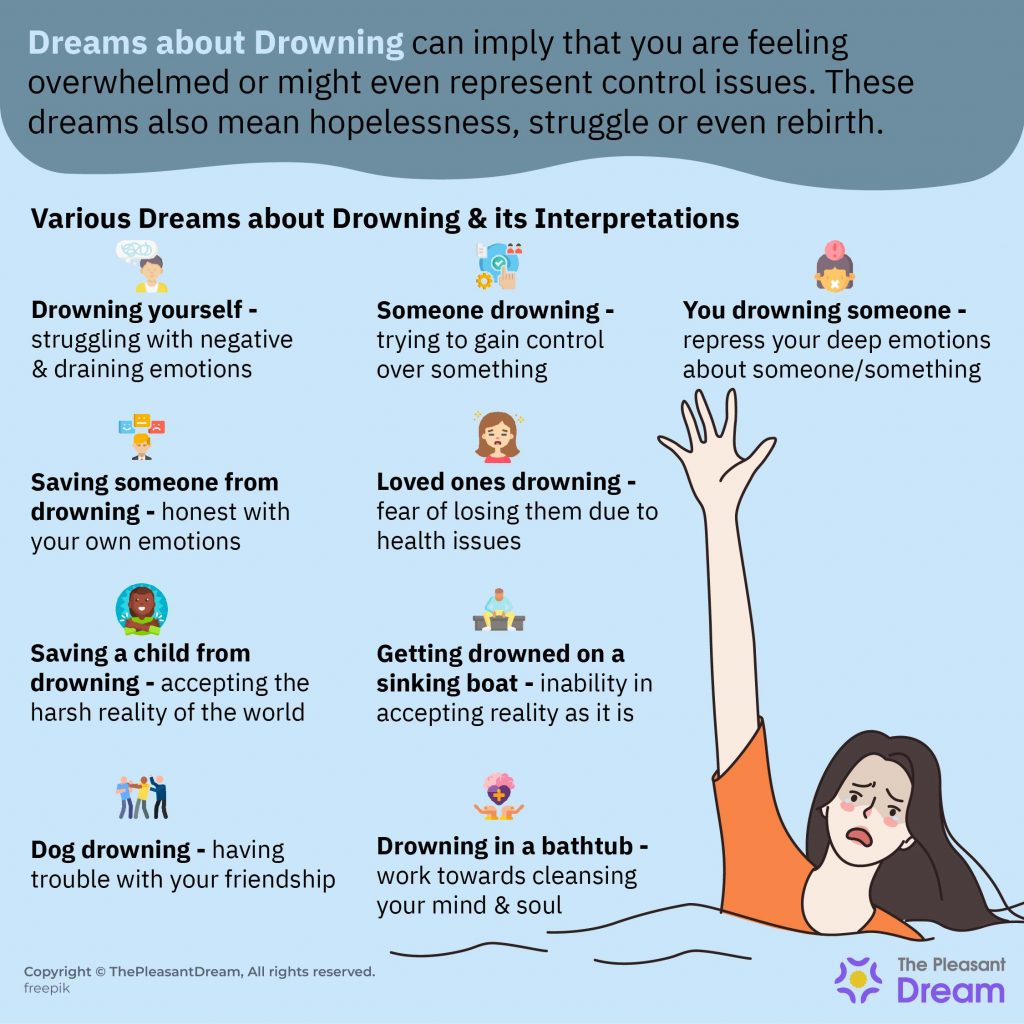The secret messages behind your dreams of drowning revealed!

Imagine standing on the edge of a vast ocean, contemplating its infinite depths. Suddenly, you are swept under by a powerful surge, struggling to stay afloat. Was it just a nightmare, or does this experience hold a message for your unconscious mind? The interpretation of drowning dreams can reveal deep insights into your desires, thoughts, and emotions.
Dreams can reveal subconscious thoughts. Understanding them unlocks self-awareness and personal growth. Here, we explore the symbolic meaning of drowning dreams. Decoding dreams unveils profound insights—fears, trauma, and desires. Gain clarity, introspection, and resilience by deciphering the language of your dreams. Let’s set sail on this transformative journey!
How to Recall Your Dreams

Remembering your dreams can help you understand your subconscious thoughts and feelings. Here are techniques to help you remember your dreams.
1. Keep a Dream Journal: Write down or record your dreams in detail. Train your brain to recall your dreams upon waking up.
2. Set Your Intention: Before bed, consciously intend to remember your dreams. Repeat a phrase like “I will remember my dreams” to program your mind.
3. Strengthen Your Dream Recall: To improve dream recall, spend a few minutes each morning trying to remember details from your dreams. Even if only fragments come to mind, jot them down as clues for future recall.
4. Create a Dream-Friendly Environment: Ensure your sleeping area promotes better dream recollection. Keep the room dark, quiet, and at a comfortable temperature for restful sleep and improved dream recall.
5. Avoid Distractions: Limit screen time before bed for better dream recall. Instead, engage in relaxing activities like reading or meditating to induce a more restful state of mind.
6. Experiment with Lucid Dreaming: Lucid dreaming is being aware that you’re dreaming while in the dream state. By practicing techniques to induce lucid dreams like reality checks and setting dream goals, you may find that it’s easier to remember them when waking up. Keep in mind that dream recall varies between individuals, so it takes time to establish a routine. Be patient and celebrate even the smallest fragments of recalled dreams.
Techniques for Dream Interpretation

Dream interpretation can provide valuable insights into our subconscious mind. Understanding the symbolism and meaning behind our dreams can reveal emotions, fears, and desires. While there is no definitive guide to deciphering dreams, there are techniques to help interpret them.
Keeping a dream journal can be a helpful tool for self-reflection and personal growth. Many people don’t realize that dreams can offer valuable insights into their thoughts, feelings, and subconscious experiences. By recording your dreams on a regular basis, you can gain a better understanding of yourself and your desires. Dream journaling is a way to capture and explore the unique inner world of your dreams. It allows you to delve deeper into your own mind and uncover hidden meanings and symbolism. When you consistently record your dreams, patterns and recurring themes will also become apparent, providing further clues to explore. With practice, you can become skilled at interpreting the messages and symbols presented in your dreams. This self-awareness and insight can contribute to any personal growth journey and be applied to various aspects of your life.

Keeping a dream journal is an effective technique for dream interpretation. By recording dreams upon waking, you can capture details, emotions, and symbols that might be forgotten. A dream journal serves as a reference, allowing you to analyze patterns and themes. Over time, correlations between dream content and daily life may become apparent.
The process of association allows for the connection of symbols to meaning. Symbols can be physical objects, visual representations, words, or other sensory experiences. By linking symbols to meaning, we can convey complex concepts in a way that is easily understood by others. This ability to associate symbols with meaning is a fundamental aspect of human communication and learning.
When someone sees a symbol, such as a stop sign, they immediately understand that it represents the concept of “stop.” This association is formed through previous experiences and learning. As a result, symbols become a powerful tool for communication, as they can convey meaning quickly and efficiently.
One of the key considerations when using symbols is the audience. It is important to choose symbols that are widely recognized and understood. This ensures that the intended message is accurately conveyed.
Overall, the meaning of symbols is subjective and can vary depending on cultural and individual interpretations. Additionally, the ability to interpret symbols is not always inherent and may require prior knowledge or exposure.
By following the principles of association and considering the audience, symbols can be a valuable tool for communication, allowing for the expression of complex ideas in a simplified and easily understood manner.

Dreams commonly include symbols with personal meaning. By associating these symbols with events, objects, or people from your waking life, you can uncover hidden meanings in your dreams. For instance, dreaming of a cat may represent independence or elegance. Reflecting on the qualities and characteristics of symbols can provide insights into your values and beliefs.
Seeking external insights can greatly benefit individuals and organizations alike. Obtaining different perspectives and opinions from experts or people in related fields can assist in improving decision-making processes. External insights provide a fresh and unbiased viewpoint that can uncover blind spots and highlight potential opportunities. Collaborating with individuals external to your organization can bring in new ideas, insights, and expertise that may not have been considered otherwise. These external voices can challenge existing norms and foster innovation. Building relationships and networks with external experts can also lead to long-term collaborations and partnerships. Through external insight, individuals and organizations can navigate complex challenges, identify solutions, and stay ahead in the competitive landscape. It is essential to actively seek external insights to stay sharp and continuously learn and grow.

Interpreting dreams can sometimes be challenging. Seeking input from others such as friends, family, or professionals can provide valuable insights. Sharing your dreams may offer alternative perspectives and expand your understanding, considering that everyone has their own experiences and symbolism. Keep in mind that the insights provided only serve as a reference to develop your own interpretation.



